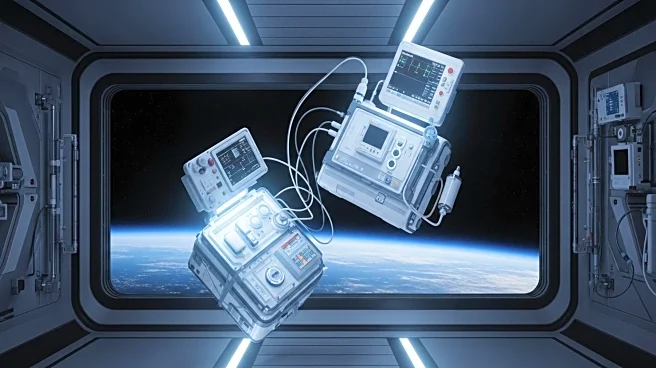What's Happening?
The International Space Station (ISS) continues to be a hub for space medicine research, with recent studies focusing on eye structure, digestion, and heart health. The Expedition 73 crew is exploring ways to mitigate the effects of microgravity on the human body, such as Spaceflight Associated Neuro-ocular Syndrome (SANS). Meanwhile, a planned reboost of the ISS using SpaceX's Dragon spacecraft was aborted due to a fuel tank swap issue. Ground teams are planning a follow-up reboost attempt.
Why It's Important?
Research conducted on the ISS is crucial for understanding the long-term effects of space travel on human health, which is essential for future missions to the Moon and Mars. The findings could lead to new medical interventions to protect astronauts. The aborted reboost highlights the challenges of maintaining the ISS's orbit and the importance of reliable spacecraft operations.
What's Next?
Ground teams are reviewing plans for a follow-up reboost attempt. The ongoing research on the ISS will continue to provide valuable data on human health in space, informing the development of countermeasures for future deep-space missions.
Beyond the Headlines
The ISS serves as a unique platform for international collaboration in space research, with contributions from multiple space agencies. The research conducted on the station not only benefits space exploration but also has potential applications for medical advancements on Earth.











